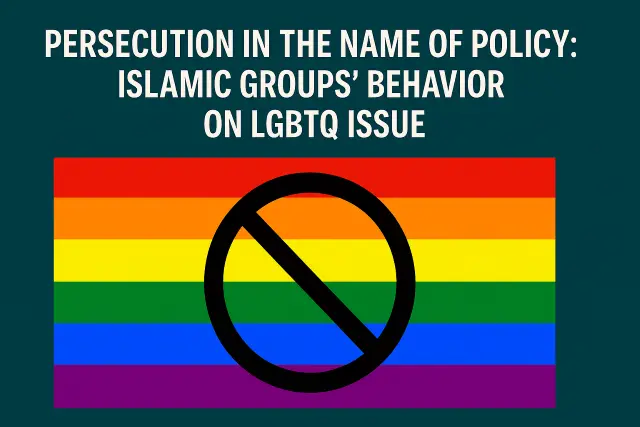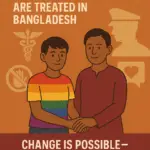In Bangladesh, certain Islamic parties and organizations mobilize public opinion by labelling LGBTQ individuals as “immoral” or part of a “Western agenda.” Their stance is often reinforced through rallies, public statements, Friday sermons, and hate speech on social media—creating an atmosphere where stigma, bullying, and even violence in families, campuses, and workplaces become justified. When religious sentiment becomes fuel for political mobilization, ethical dialogue is lost, and the risk of personal harm rises sharply.
Three clear damages emerge from this:
- Erosion of Human Dignity — Discrimination deepens in healthcare, housing, and access to legal support.
- Politics of Fear — Critics or dissenting voices are easily silenced by being branded “anti-Islamic.”
- Policy Stagnation — Essential progress in mental health support, protective laws, and sensitivity training becomes blocked.
Yet, a dialogue between religious ethics and human rights is possible. Many Muslim scholars and intellectuals remind us: Islam’s true moral spirit is rooted not in humiliation but in compassion and justice.
The way forward:
- Separate worship from politics, removing hate speech from political discourse.
- Promote fact-based awareness and non-violent ethics in mosques, madrasas, and community spaces.
- Strengthen anti-discrimination laws, train police and healthcare workers, and ensure safe reporting systems.
Faith belongs to individuals, but rights belong to everyone. Upholding this principle is the real test of civilization. Let religion not be a tool for discrimination—let empathy and the rule of law guide our path.


